At COP27, UN Women Executive Director calls on global leaders to focus on gender equality as central to climate action
UN Under-Secretary-General and UN Women Executive Director Dr. Sima Bahous carried out a two-day mission to Egypt to participate in the 27th Conference of the Parties of the UNFCCC (COP27) in Sharm El-Sheikh, Egypt. Dr. Bahous met with global leaders, COP27 Presidency officials, government representatives, civil society organizations, private sector representatives, international organisations and climate advocates from around the world, calling on parties to make gender equality, women's empowerment and women’s leadership central to climate action.
More on UN Women's leadership at COP27: Addressing climate change in the Arab States through surging women’s employment in the green and blue economy
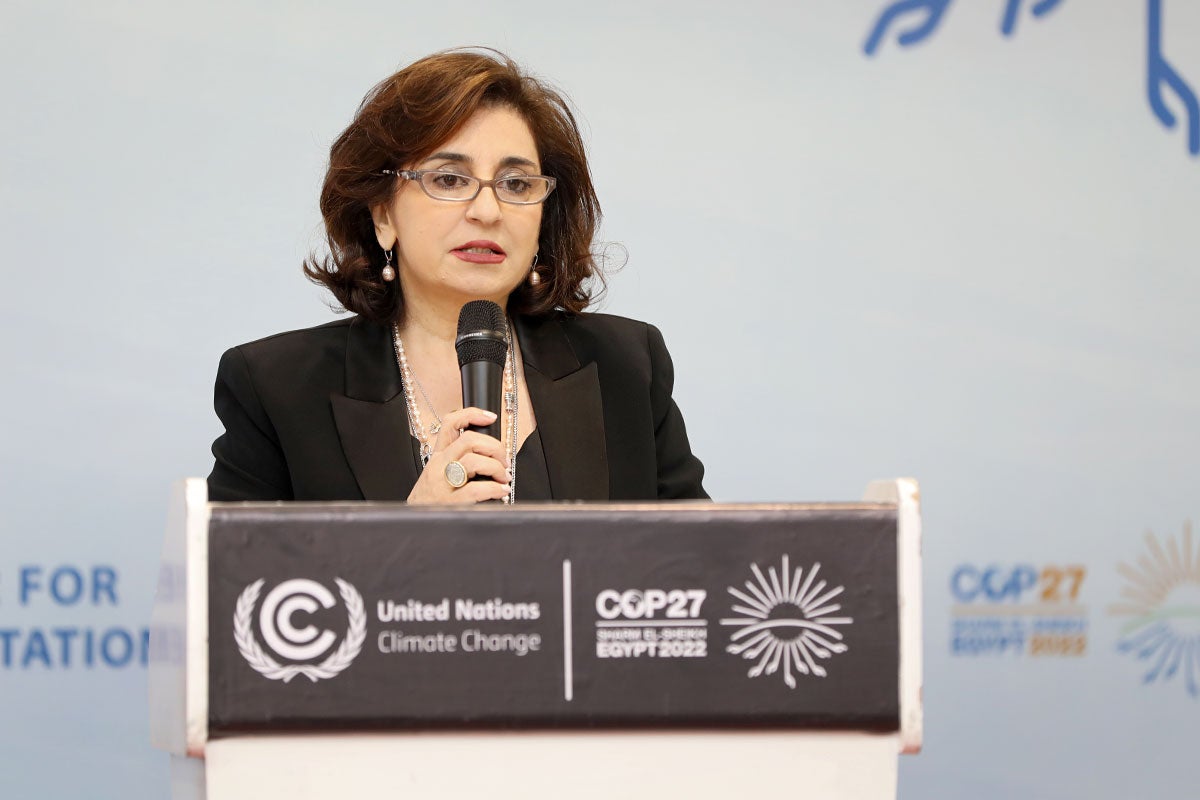
Earlier in 2022, the UN Commission on the Status of Women considered gender equality and climate change for the first time, recognising not only the impact of climate change on women and girls, but also the need for concrete, transformative climate action, with women's and girls’ leadership and agency at the heart of decision-making.
The strong engagement of the UN Women Executive Director at COP27 was an opportunity to deepen this recognition in the context of the UNFCCC process, building on growing momentum at successive COPs to more firmly mainstream gender across climate action. This increased momentum was reflected at COP27 in efforts amongst Parties to strengthen the Gender Action Plan, which resulted in updates to the Plan, with specific reference to UN Women’s support for future collaboration amongst Parties with the UNFCCC Secretariat.
Speaking at the conclusion of COP27, Dr. Bahous said:“The global ambition needed for effective climate action absolutely depends on the full, equal and meaningful participation and leadership of women and girls. UN Women welcomes the strengthening of resolve to fully integrate a gender lens reflected in the deliberations and outcomes of COP27. We encourage Parties to further deepen this commitment and move forward with robust implementation. As UN Women, we stand ready to support Parties and other partners at global, regional and country levels to drive mutually reinforcing progress on women’s leadership, gender equality and climate action.”
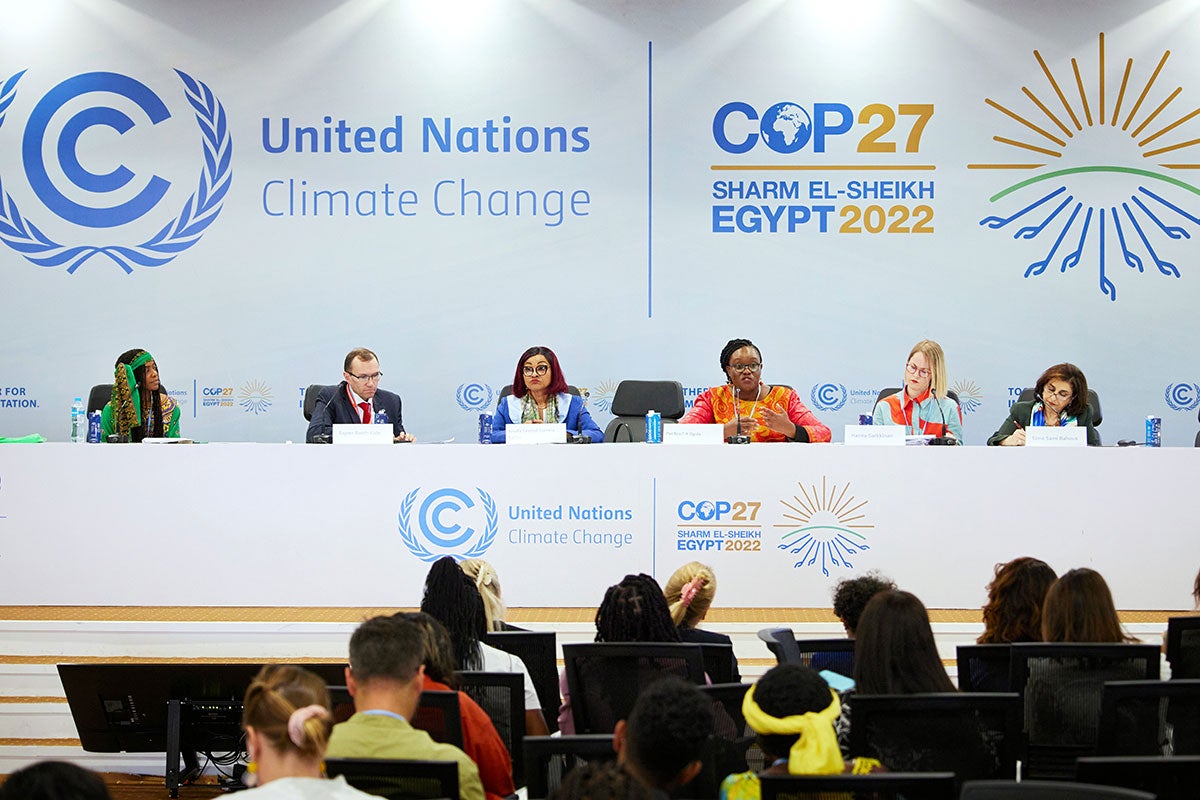
Throughout her time at COP27, the UN Women Executive Director highlighted the necessity of the full, equal and meaningful participation and leadership of women and girls at all levels of decision-making in climate action. Dr. Bahous stressed that all parties have a contribution to make in ensuring a just transition for women through gender-responsive climate policies and actions, and called for global investments and special measures to reinforce women’s skills and resilience and remove barriers to their participation and leadership in climate-smart sustainable development.
At the COP27 Presidency’s opening of Gender Day, Dr. Bahous joined the high-level panel entitled “Voices of Women Leaders in Climate Debates, Policies, Implementation and Beyond”. Among the panel’s keynote speakers were H.E. Dr. Maya Morsy, President of the Egyptian National Council for Women; H.E. Dr. Yasmine Fouad, Minister of Environment of Egypt; and H.E. Dr. Mahmoud Mohieldin, Egypt’s UN Climate Change High-Level Champion and UN Special Envoy on the 2030 Agenda. With the attendance of many senior government officials and civil society members from Africa, the panel witnessed the COP27 Presidency’s launch of the “African Women’s Climate Adaptive Priorities” initiative (AWCAP), which aims to drive impact by expanding decent work and leadership for women in green sectors, increasing women’s representation in STEM fields, and leveraging increased national investments for women-led green businesses.
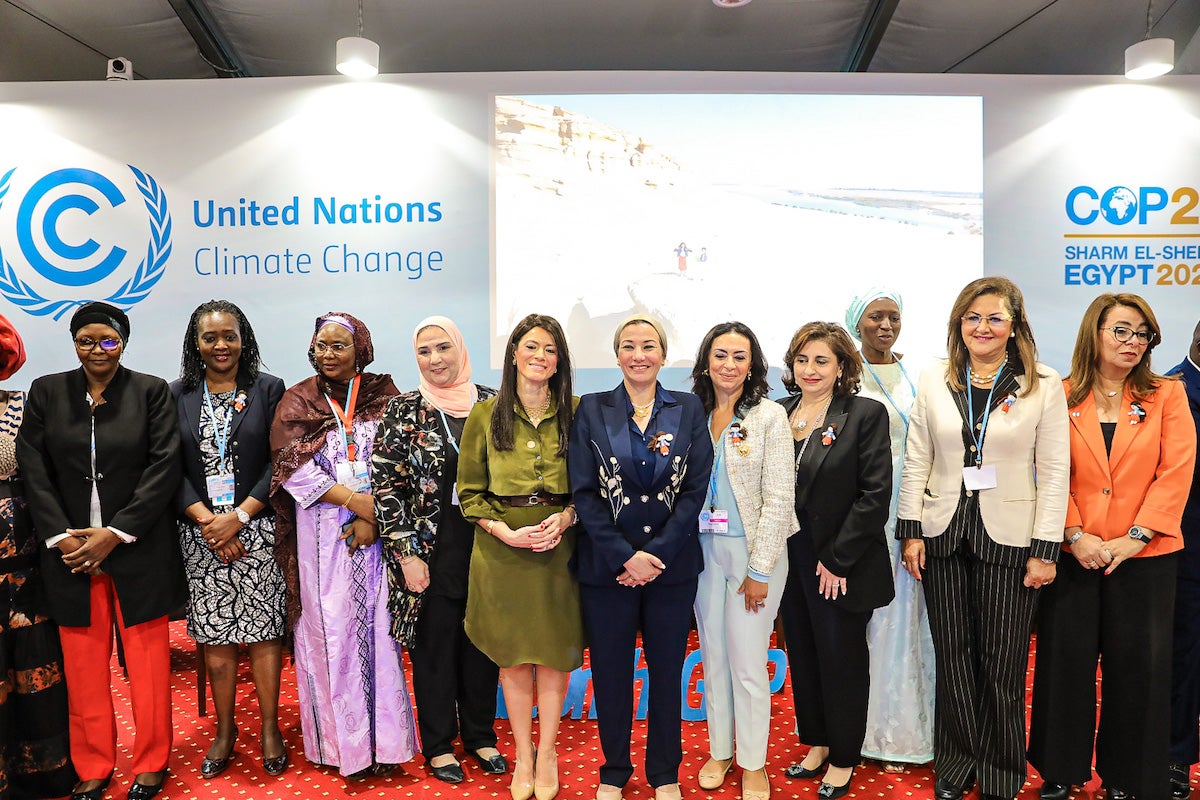
Dr. Bahous’ intervention focused on solutions, calling on parties, first, to make the necessary investment to close the massive gaps in women and girls’ access to and control of key resources; second, to ensure that structures on decision-making around climate include women as equal voices; and third, that institutional decision-makers must create space for young women and girls who have been leading global and national climate movements.
In her remarks, Dr. Bahous applauded Egypt’s COP27 Presidency for launching the AWCAP initiative, commended the commitment of the African Member States who have joined, and thanked the participating UN agencies for their partnership. The Executive Director further pledged UN Women’s commitment as AWCAP’s global partner to support its advancement.
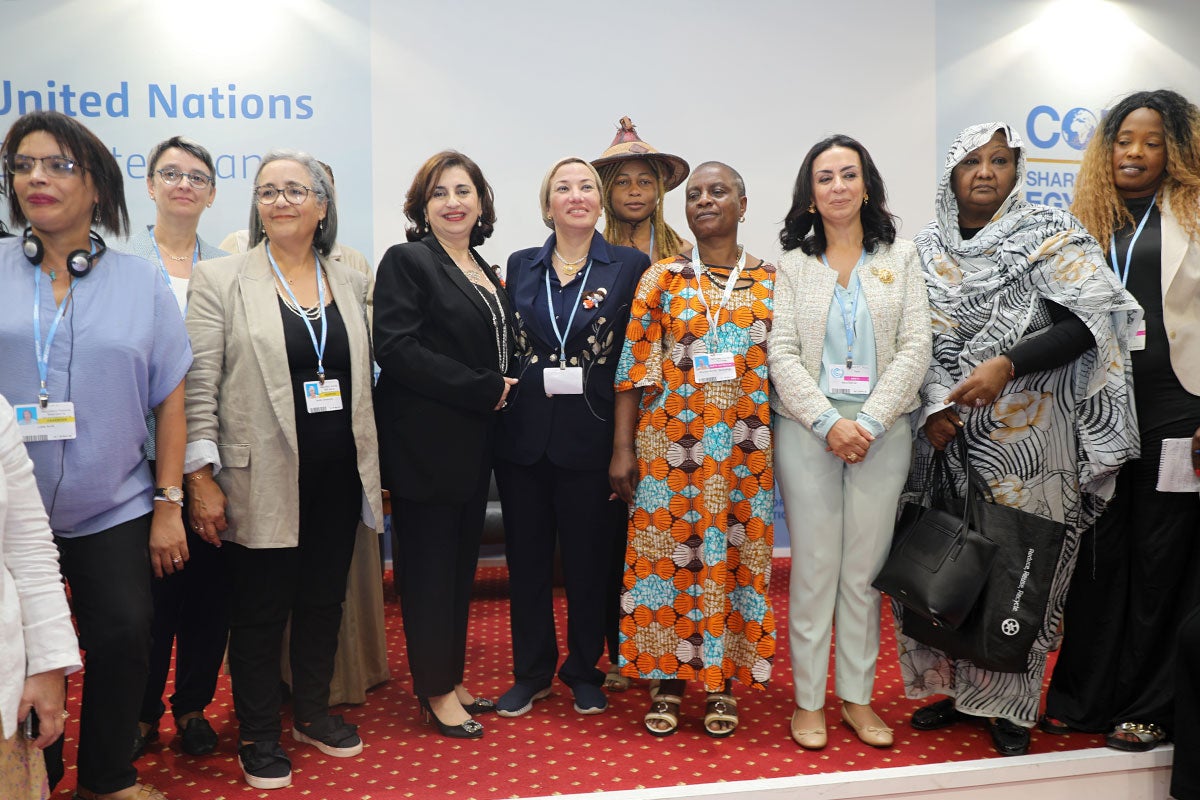
On Gender Day, Dr. Bahous joined a high-level session entitled "COVID-19 and Climate Change: Women at the Center of Planning and Response", organized by the COP27 Presidency. Under H.E. Dr. Hala Said, Egypt’s Minister of Planning and Economic Development and H.E. Madame Loupou Lamah, Guinea’s Minister of Environment and Sustainable Development, and with high level participation from WHO, UNDP and OECD, the session also launched the new “Global Gender Response Tracker with a Green Lens” from UNDP, UN Women and OECD, incorporating a climate angle into the global Gender Response Tracker developed during the height of the COVID-19 response.
In her keynote speech, Dr. Bahous highlighted how the COVID-19 pandemic laid bare the deep structural inequalities that shape our societies, leading to a rise in gender-based violence, unpaid care work, job losses and economic insecurity, all of which have disproportionately impacted women and girls. She added that although the world had witnessed governments mount an unprecedented response to the pandemic, the UN Women and UNDP COVID-19 Global Gender Response Tracker found that only 13 per cent of social protection measures addressed women’s economic security, and only 7 per cent provided support for unpaid care work.
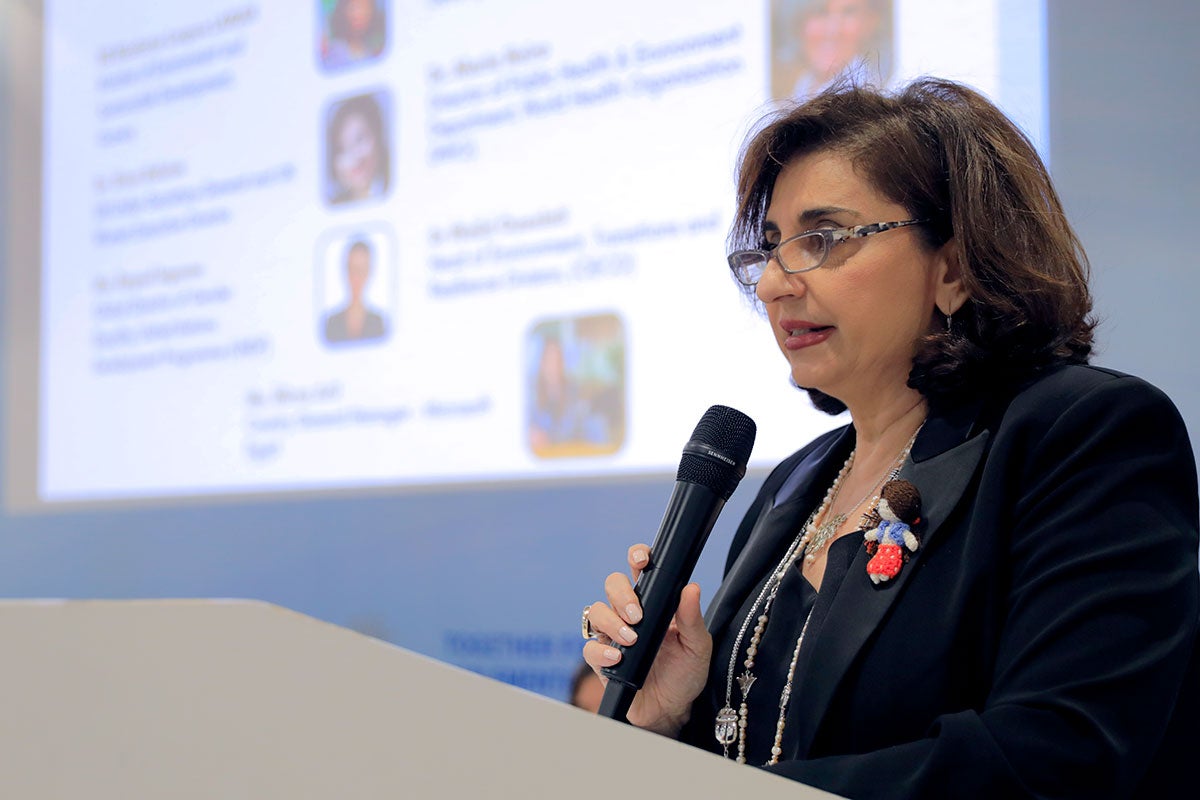
“We need to recognize—and be able to measure—the disproportionate impacts of the climate crisis on women and girls; and we need to ensure that women are in decision-making spaces and central to efforts to create sustainable economies. We have seen that it is crucial that women’s perspectives and knowledge be included if we are to have a sustainable and lasting recovery. This is true for any crisis,” stated Dr. Bahous, linking the lessons learned from the COVID-19 pandemic to the challenge of confronting climate change.
UN Women, in partnership with the African Union Commission Department for Agriculture, Rural Development, Blue Economy, and Sustainable Environment (AUC-ARBE) and the Nordic Council of Ministers, organized a side event with a focus on accelerating leadership for gender equality in climate action. Moderated by renowned journalist Ms. Chicka Oduah, Dr. Bahous spoke alongside H.E. Mr. Espen Barth Eide, Norway’s Minister of Climate and Environment and Chair of the Nordic Council of Ministers, Ambassador Josefa Leonel Correia Sacko, Commissioner for AUC-ARBE, Dr. Pacifica F. Achieng Ogola, Director of Climate Change within Kenya’s Ministry of Environment and Forestry, and H.E. Ms. Hanna Sarkkinen, Finland’s Minister of Social Affairs and Health. Youth delegates from Africa and the Nordic countries were given the floor to reflect and challenge the sentiments shared by the esteemed speakers. In her interventions, Dr. Bahous stressed that, globally, too little funding is targeted at the intersection of gender equality and climate action, calling on parties to boost funding for gender-equal solutions. Dr. Bahous commended the innovation and resilience shown by women across Africa as key “solution makers’’ for the world’s response.
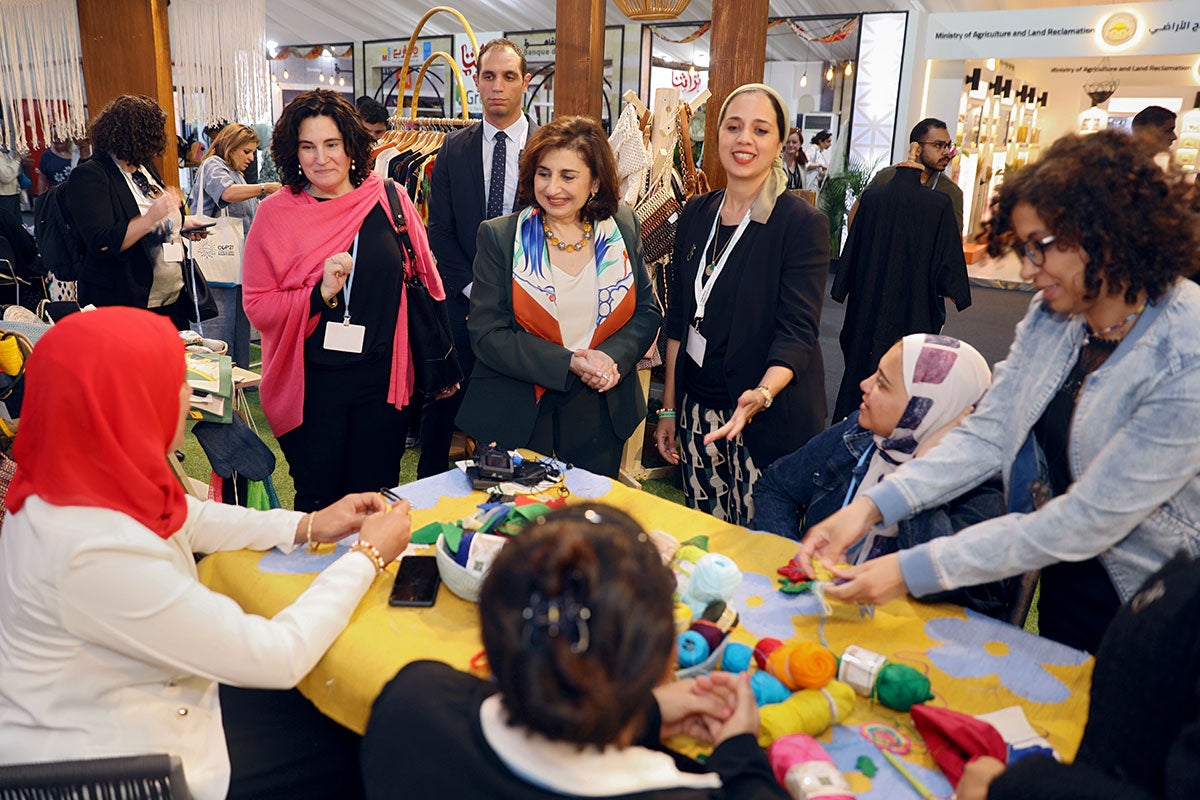
On the margins of her official participation at COP27, Dr. Bahous accompanied the UN Women Egypt team to visit an exhibition by the National Council for Women. During her visit, Dr. Bahous saw a range of eco-friendly products developed by more than 40 women from different governorates in Egypt. Impressed by the high quality of the products displayed, she praised the exhibitors for their hard work and commitment to use eco-friendly and recycled materials as part of their contribution to ensuring a sustainable and green planet for future generations.









